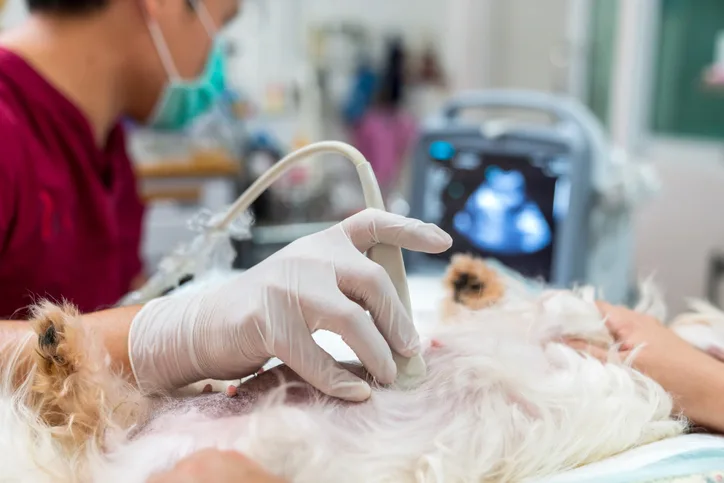
In the Literature
McDonald C, Barfield D, Cole L. Assessing primary care veterinarians’ use of and confidence in performing point‐of‐care ultrasound. Vet Rec. 2023;193(8):e3174. doi:10.1002/vetr.3174
The Research …
Point-of-care ultrasound (POCUS) can help diagnose and monitor life-threatening conditions in veterinary emergency and critical care settings. In human medicine, the Royal College of Emergency Medicine curriculum includes mandatory POCUS training, and formal training has been shown to significantly improve physician confidence and skill.1 Formal training is not required in veterinary medicine.
In this study, primary care clinicians were surveyed to assess level of confidence with, use of, and training for POCUS of the abdomen and thorax. Of 211 respondents, 95.3% used POCUS. With abdominal POCUS, respondents were most confident in detecting free peritoneal fluid, the urinary bladder, and the liver and least confident in detecting the ureters and ovaries. With thoracic POCUS, respondents were most confident in detecting pleural and pericardial fluid and least confident in detecting the lung pulse and subpleural signs (eg, E- and Z-lines). Regarding pathology, respondents were most confident in detecting free fluid, pyometra, pericardial and pleural effusion, and cardiac tamponade and least confident in detecting pancreatitis, ureteral obstruction, GI foreign body, pulmonary hypertension, bronchial disease, and bronchopneumonia. Respondents were more confident with examination of the abdomen compared with the thorax.
Most respondents used an established POCUS protocol,2,3 but 32.3% reported using a nonstandardized protocol. Slightly more than half (50.2%) of respondents were self-taught, and 17.4% received training through a specific practical course. Prior training and type of training did not affect confidence scores with abdominal POCUS; however, training from an experienced colleague or self-instruction using journal articles or videos resulted in higher confidence with thoracic POCUS compared with other training methods. A lack of confidence was the most common cause cited for limiting use of POCUS.
… The Takeaways
Key pearls to put into practice:
POCUS is practical and increasingly used to diagnose and monitor life-threatening conditions, but primary care clinicians in this study reported limited use of POCUS as a result of low confidence.
Most respondents stated preference for standardized, practical POCUS training using live patients, although training method did not affect confidence with abdominal POCUS.
A limitation of this study was the possibility that respondents over- or underestimated their abilities.
You are reading 2-Minute Takeaways, a research summary resource presented by Clinician’s Brief. Clinician’s Brief does not conduct primary research.